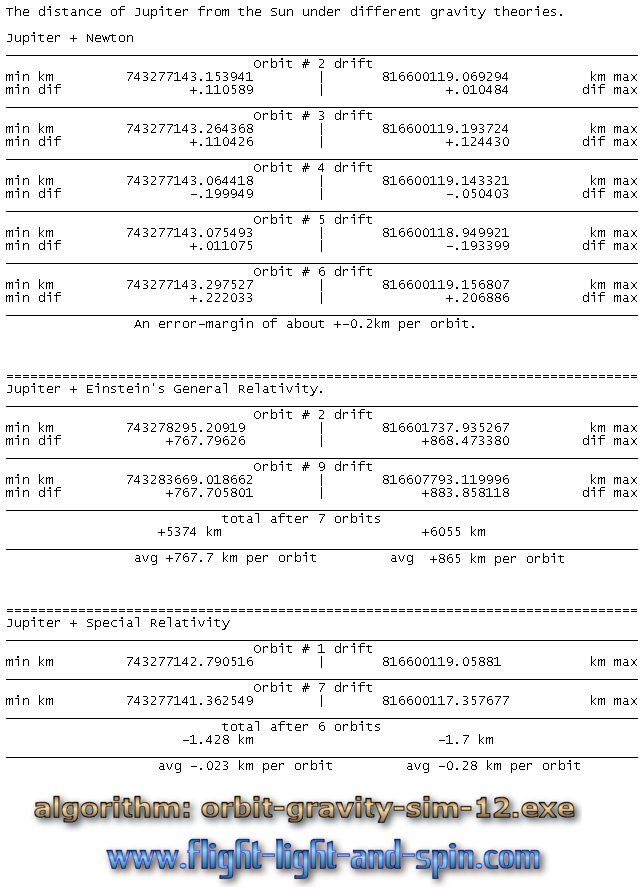| Relativity and Jupiter's orbit Strictly speaking Jupiter and the Sun are a binary system, albeit with a mass-ratio difference of about 1:1000. Scenario [3] and [4] of the algorithm orbit-gravity-sim-12.exe run at the brisk time-rate-scale of 1:10 million, completing its 12 year orbit in 40 seconds for the user. The
margin of error in the algorithm OGS12 (orbit-gravity-sim-11.exe)
with Scenario [3]
– which consists of Jupiter under Newtonian-gravity; amounts
to an average of less than 0.2km over 10 orbits. Here is the data
for how the orbit of Jupiter is influenced by the various theories:
General Relativity, Special Relativity and Newtonian gravity: |
||
| So
if gravity has the same velocity that light does, according to General
Relativity, then the innermost part of Jupiter’s orbit should
be receding from the Sun at over 760km per orbit. (Or 60km per Earth-year.)
The outermost part of the orbit would recede at over 860km per orbit. . |
||
| This is an extract summary of Chapter XXX of the book: Flight Light and Spin Download page for relativity simulation: algorithm orbit-gravity-sim-12.exe The full chapter can be downloaded here: Sum-Theory.pdf (5.5 mb, 57 pages, this pdf file is too big for chrome, use firefox) List of: abbreviated short articles . . |
|||||




